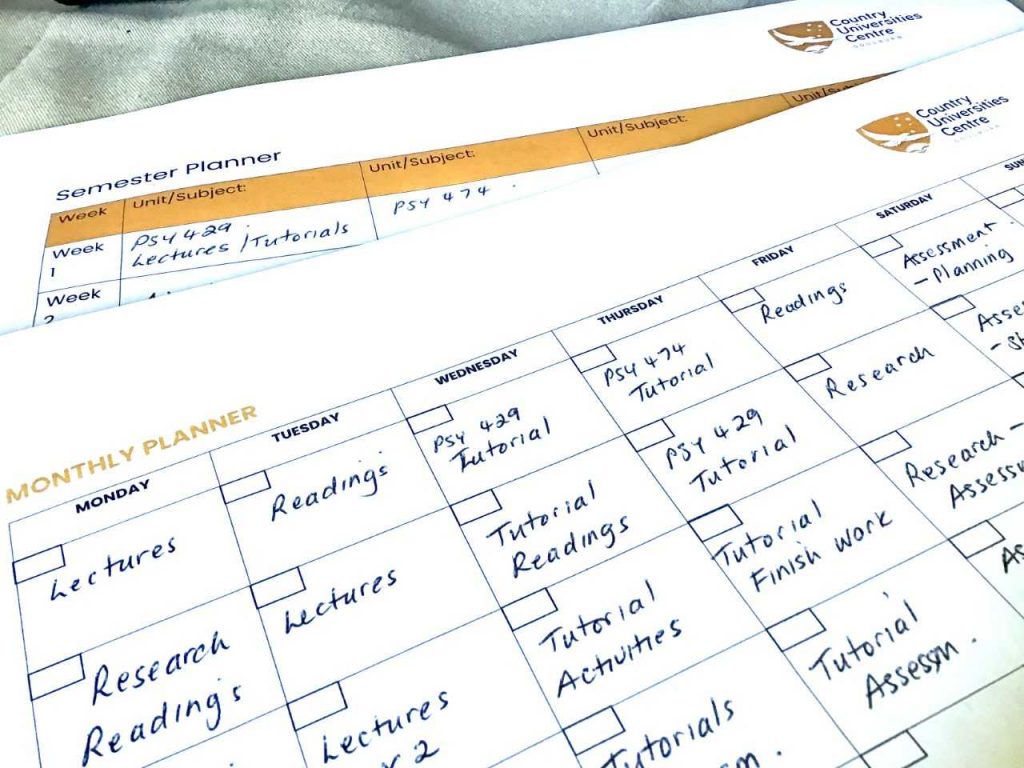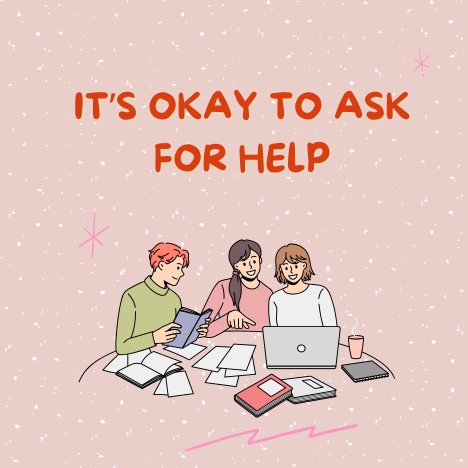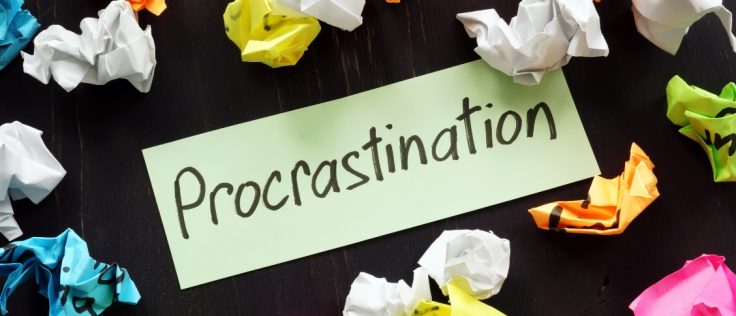Written by Dianne Whittle
Trying to figure out how to begin an assignment can be really challenging.
So much so, you begin to do anything but your work.
You start to clean the house, or you suddenly remember that it is your best friend’s sisters birthday so you decided to bake them a cake instead of studying.
This is how you begin to procrastinate.
Dianne shares her ultimate guide to stay on top of tasks to help beat procrastination!

I call myself the ‘Queen of Procrastination’.
I procrastinate but get so annoyed with myself for procrastinating that it takes conscious effort to pull myself out of it.
The best way I deal with procrastination is to stop and think about why I procrastinate.
I procrastinate because I don’t understand the work, I’m unsure of how to proceed, I lack confidence in my abilities, or I’m tired and overwhelmed with the amount of work I need to do.
If it’s an assessment, usually procrastinating means I don’t know what the assessment question is asking me, or which direction I want to take – it means I haven’t found the ‘aha’ moment where everything falls into place, and I know what I need to write.
So, I put off starting work or I do way too much research and end up feeling overwhelmed. If I understand why I do it though, I can use strategies to manage it.
How to manage procrastination.
- Create a study plan
I find it useful to develop a study plan at the beginning of each semester. I get my template from my local Country University Centre (CUC) but Charles Sturt University has some great planners available as well.
I use the semester wall study planner available through the Student Representative Committee (SRC) at Charles Sturt University as well.
You can do a weekly, monthly, or by semester. I find it useful to write everything on a semester one so I can see at first glance when assessments are due.

- Create a weekly or daily to-do list.
At the start of each week, I write a list in my old-school diary of all the tasks I need to do and over the week I steadily work through those tasks until they’re done.
I’m a list writer so writing a list and ticking those tasks off is rewarding for me. Include time to do the activities you enjoy in your study plan.
When I write my weekly study plan I factor in breaks from study – sometimes it’s half an hour, sometimes it’s an entire day. It gives me a break, some distance from my study, and hopefully, a fresh, new perspective and motivation once I return to my work.
- Try using the Pomodoro method.
I use the Pomodoro method to help me get started on a task and force myself to work. I choose a task, set my timer for 25 minutes and work solidly without stopping.
If I’m writing an assessment, starting the assessment is always hard for me, so I use the Pomodoro method to force myself to write – something, anything, but I write to get something down because something is better than nothing.
I then have a 5-minute break and start again. Once I’ve done a few of these I then take a longer break.
- Turn off notifications
When I’m not in the mood for study but have to get things done I’m easily distracted, so I mute my phone, and turn the tv and music off.
You can turn off or block social media or other tempting distractions on your computer – I haven’t found that necessary but it’s an option.
When I take a longer break after a few 25-minute sessions, that’s my time to check social media.
Getting up out of my chair and walking away from the computer is also an effective way to stop getting overwhelmed and bored by my work. If I’m bored I will definitely procrastinate.

- Ask for help
One of the best tips I have to deal with procrastination is to ask for help and use the resources available to you.
I have access to a CUC and Learning Skills Advisor (LSA). Sometimes using a difference space, with less distractions, to study in – a library, my CUC, motivates me to get more work done.
The CUC’s LSA has helped me develop a realistic study plan and given me tips and resources to work smarter not harder.
She also helps me work through my assessment tasks and discuss ideas to plan my assessments.
Often that gives me the clarity I need to see how to progress with an assessment.
CSU has many resources available. Their Academic Skills Advisors are amazing, and you can book 1:1 appointments with them which is an immense help.
The library is great too, you can chat with a librarian, and they can help you learn how to refine your research skills to help you work more efficiently.
Reach out to other students to create a study group.
Having another student who understands and is working alongside you is motivating and makes you feel less isolated and lost in your study. For me, it prevents me procrastinating over assessments because I can talk to someone who understands the tasks we’re doing.
My best tips to avoid procrastination are – plan your study and ask for help. Use the resources that CSU have available to you.

A final note.
Thank you Dianne for sharing your best tips and tricks to defeat procrastination!
We wish all students the very best in staying on top of your studies this semester!
If you want to share your own tips on how to beat procrastination, the Charlie team would love to hear all about it.
Get in touch by emailing charlie@csu.edu.au










